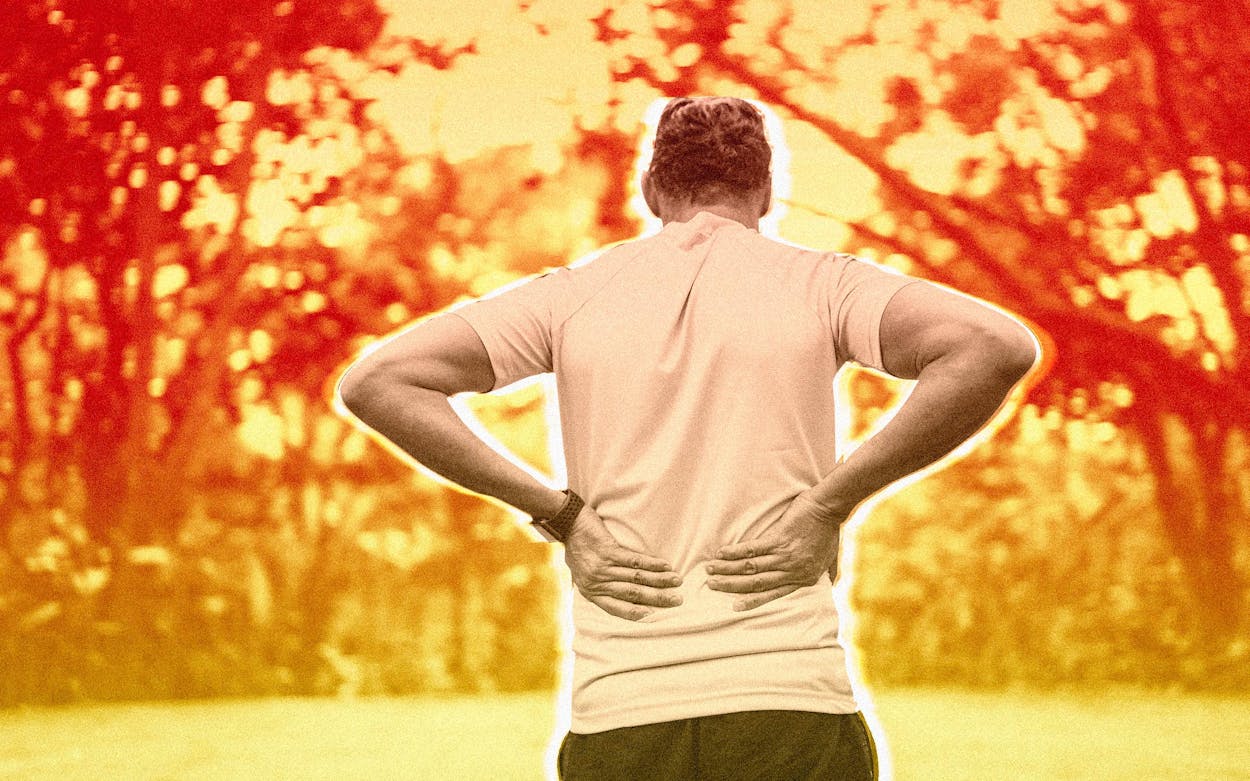In Spike Lee’s 1989 classic Do the Right Thing, tensions steadily rise over the course of a particularly hot day in the Bedford–Stuyvesant neighborhood of Brooklyn, New York, amid a heat wave—finally culminating in chaos and tragedy. Though the film was ultimately a commentary about society and race relations in America, there was another lesson to be learned, about the heat: It’ll drive you mad.
Now researchers are looking into whether heat causes Seasonal Affective Disorder (SAD), a type of depression characterized by its recurrent seasonal pattern. Though it is most often associated with winter months, during which a lack of sunlight and activity can cause many of the same symptoms of major depression—feelings of hopelessness, low energy, and changes in appetite and weight—data shows that a similar pattern may also occur for some during the summer months.
With temperatures rising globally due to climate change, the American psychiatric community is starting to pay closer attention to something of special concern to Texans, during a summer on track to be one of the most extreme in state history: the correlation between heat and mental health. A 2022 study of more than two million Americans, using data collected between 2010 and 2019, showed that days of extreme heat were associated with increased rates of mental health–related emergency room visits. Other recent research out of Stanford University, based on decades of temperature and suicide data from thousands of U.S. counties and Mexican municipalities, found that suicide rates rose across the United States and Mexico as temperatures did. The study projected that if temperatures continue to rise consistently with climate change models, and if the observed correlated rise in suicides held, this could lead to an additional 14,000 suicides in the United States by 2050.
These new studies add to existing research that has found that exposure to excessive heat can affect our frame of mind: serotonin, a neurotransmitter in the body that regulates mood, fluctuates with the heat. As a result, heat exposure can cause irritability, decreased motivation, anxiety, aggressive behavior, brain fog—even road rage. This is especially true of folks with preexisting mental health conditions.
Asim Shah, professor and executive vice chair of psychiatry and behavioral sciences at Baylor College of Medicine in Houston, said that this year the effects of the heat have been particularly noticeable. “Five years ago, nobody even recognized this as a problem,” said Shah. “People are now recognizing this as a subject which needs to be discussed, as a subject we need to research.” Several federal agencies, including the Centers for Disease Control, are beginning to conduct research on the relationship between heat and our mental health, he added.
In the meantime, some folks in Texas are feeling the effects of an unrelenting summer: Tim Rowe, a 35-year-old Austin contractor whose work often necessitates working under the sun for long hours, or else at construction sites without air conditioning, said he first noticed he had summer malaise several years ago, when he moved to San Marcos. Driving in a car without AC to work sites in Austin made him feel “insane,” he said, adding, “The first hot day in April—when it’s not even that hot—I just get that instant depletion.”
For Rowe, it’s not just the heat itself but what it signals for his lifestyle. “My routines and habits fall apart,” he said. A frequent runner, Rowe said that in the summer months, he has to wake up sometimes as early as 5:30 in the morning to avoid the heat. “I exercise less. I gain like fifteen pounds every summer, and then that gets me depressed. It’s just like one thing after another.”
Even for those who have the luxury of inhabiting temperature-controlled spaces for work, the excessive heat this summer has been difficult to bear. Abby Allen, a 22-year-old law student at St. Mary’s University in San Antonio, said she’s felt a sense of dread and hopelessness with the heat. This summer, she got her first nine-to-five job. “By the time I get off work, it’s the hottest part of the day. Like, it’s absolutely sweltering,” she said. “So I’m pretty much just holed up with a book or watching Netflix until like eight or nine. And then I try to go outside.” By that time, she said, “I have two hours left in the day.”
To combat the psychological effects of the heat, Shah recommended staying hydrated, replenishing electrolytes, and trying to stay cool. He also warned against the effects of heat and certain drugs, as some mental health medications, such as lithium—used to treat bipolar disorder—interact with sunlight.
As for Rowe, who doesn’t have the option to escape the heat, he’ll be waiting for the temperature to break. “The first cool day of the year, my mood immediately changes,” he said. Not even the freezing temperatures last winter chastened him: “I was going on really long runs around town. I was like, ‘This is great.’”
- More About:
- Politics & Policy








